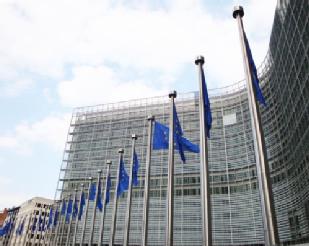IER News & blogs
Covid-19 lockdown and migrant workers: Survey of vocational trainees from Bihar and Jharkhand - Blog by Bhaskar Chakravorty and colleagues
 The nationwide lockdown in India hit migrant workers particularly hard and once travel restrictions were lifted, 11 million interstate migrants returned home. In this blog, Bhaskar Chakravorty, IER PhD student, and colleagues, present key findings from a telephone survey of young people from Bihar and Jharkhand who were trainees of a large skill-based training programme, titled ‘Deen Dayal Upadhyay Grameen Kaushalya Yojana’ (DDU-GKY) in India. It places disadvantaged rural youth into formal salaried jobs in manufacturing and services, often in urban areas in other states. The survey findings focus on the impact of the lockdown on interstate migrant workers and their willingness to migrate again in the future. Read more here.
The nationwide lockdown in India hit migrant workers particularly hard and once travel restrictions were lifted, 11 million interstate migrants returned home. In this blog, Bhaskar Chakravorty, IER PhD student, and colleagues, present key findings from a telephone survey of young people from Bihar and Jharkhand who were trainees of a large skill-based training programme, titled ‘Deen Dayal Upadhyay Grameen Kaushalya Yojana’ (DDU-GKY) in India. It places disadvantaged rural youth into formal salaried jobs in manufacturing and services, often in urban areas in other states. The survey findings focus on the impact of the lockdown on interstate migrant workers and their willingness to migrate again in the future. Read more here.
UK Employment Policy in a Changing Europe - Warwick Brexit Briefings on Employment

A series of research-based policy briefings, organized by the University of Warwick and its Connecting Research on Employment and Work (CREW) network, will take place over four consecutive weeks in November and early December 2017 in London.
Experts from the Warwick Institute for Employment Research, Warwick Law School and Warwick Business School's Industrial Relations Research Unit evaluate the employment policy, rights, skills and labour market implications of the UK's withdrawal from the EU and make research-based recommendations for future development of policy in these areas, as the UK leaves the EU.
Next dates for the briefing, which will be held at Central Hall, Maurice Barnett room, Westminster, London, SW1H 9NH from 12:30-1:30, with lunch available from 12:00:
- 14 November - Migration and Skills: Guglielmo Meardi, Anne Green & Erika Kispeter
- 23 November - Job Loss and Job Creation – Pitfalls and Opportunities?: Nigel Driffield
- 27 November - Training Funds for the Unemployed: Chris Warhurst, Daria Luchinskaya & Peter Dickinson
- 7 December - Employment Rights: Ania Zbyszewska & Alan Neal
If you would like to RSVP to any of the events, please contact Lynne Marston: L.Marston@warwick.ac.uk.
Report by IER and IFF Research reveals: Half of UK construction firms with EU staff expect impact from Brexit
 A comprehensive report into migration and the construction industry by IER and IFF Research has been published by the Construction Industry Training Board (CITB) . The large-scale research has brought together the views of construction firms, employment agencies and migrant workers.
A comprehensive report into migration and the construction industry by IER and IFF Research has been published by the Construction Industry Training Board (CITB) . The large-scale research has brought together the views of construction firms, employment agencies and migrant workers.
The report has revealed that a third of firms employ migrant workers, saying they have comparable skills to British workers and are more readily available. In London one in two employers say they are ‘very dependent’ on migrant workers, compared to around one in six in Yorkshire and the Humber. Some employers (22%) also said that migrants have a better work ethic. But only 1% of firms said they specifically look to recruit migrants. The research team at IER included Anne Green, David Owen and Erika Kispeter.
Brexit briefings on employment
 As part of the Warwick's faculty of social sciences CREW network, IER, the Law School and the Industrial Relations Research Unit have an award from the Higher Education Innovation Fund to produce a series of Brexit Briefings on Employment. The four thematic briefings will focus on job loss and job creation; training for the unemployed; employment rights and regulation; migration and skills. Each will present key research evidence and make recommendations for the development of new policy as the UK exits the EU. Each will also have a public launch over May-July this year.
As part of the Warwick's faculty of social sciences CREW network, IER, the Law School and the Industrial Relations Research Unit have an award from the Higher Education Innovation Fund to produce a series of Brexit Briefings on Employment. The four thematic briefings will focus on job loss and job creation; training for the unemployed; employment rights and regulation; migration and skills. Each will present key research evidence and make recommendations for the development of new policy as the UK exits the EU. Each will also have a public launch over May-July this year.
For further information, contact Professor Chris Warhurst, Dr Ania Zbyszewska or Professor Guglielmo Meardi at ier@warwick.ac.uk
Do you work in the hotels, restaurants or fast food outlets industry or in the construction industry in the West Midlands?
If so, we would love to talk to you.
The Institute for Employment Research at the University of Warwick is doing some research for the Home Office on why and how different groups of people work in hotels, restaurants and fast food outlets or in the construction industry in the Greater West Midlands area. The experiences of those working in these two sectors of the economy will be compared and contrasted.
